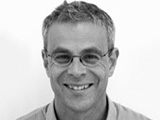An Interview with Professor Laurent Goetschel, Director of swisspeace
28 Aug 2015
What is swisspeace’s mission and what are the areas you focus on?
Swisspeace is a practice-oriented peace research institute with offices in Bern (its headquarters) and in Basel, where we are an associated Institute of the University. Our primary focus is on the prevention and peaceful transformation of armed conflicts, which in practical terms means we strive to link research to practice and vice versa. In terms of research, we generate scientific findings and support the transfer of knowledge between researchers and practitioners; we conduct research projects on conflict and peace issues, and we establish research partnerships in conflict-affected regions such as South Sudan, Côte d’Ivoire or Nepal. In terms of practice, we support local and international governmental and non-governmental organizations to develop and implement prevention and peacebuilding programs. We also offer scientifically-based advisory services in the form of conflict analysis, concept and strategy development, and training courses.
To answer the second part of your question, swisspeace has developed expertise in six key thematic areas of civilian peacebuilding – 1) mediation, 2) analysis & impact, 3) statehood & conflict, 4) dealing with the past, 5) gender, and 6) business & peace. Indeed, we are currently relying on our expertise in these areas to support peace processes in Myanmar, Palestine, South Sudan and Syria.
What kind of training and teaching activities do you offer?
Swisspeace has been offering short training courses for practitioners for more than ten years through its Centre for Peacebuilding (KOFF) (see below). Additionally, since 2012 we have been conducting executive programs at the University of Basel. The participants in these postgraduate courses benefit in three ways: they link academic findings with current insights from peacebuilding practice, they acquire peacebuilding skills, and they broaden their professional ties. It’s important to note that we developed this postgraduate track after we realized that there was a growing need for peacebuilding practitioners to examine their work from a critical perspective. (The practitioners want to discover what researchers have to say about the issues they face in their everyday work.) As a result, in 2013 we launched the external pageswisspeace Academycall_made in Basel which now offers a broad range of courses leading to a Master of Advances Studies (MAS) in Civilian Peacebuilding. It’s a modular program which can be arranged according to individual needs and priorities. It also includes modules where individuals can earn a Certificate of Advanced Studies (CAS) or a Diploma of Advanced Studies (DAS).
Can you tell us more about the Centre for Peacebuilding (KOFF)?
KOFF, which is hosted by swisspeace, is a dialogue, exchange and networking platform that connects Swiss state and non-state peacebuilding actors. It has performed this unique role since 2001 in order to ensure that Swiss peacebuilding activities are strengthened, remain relevant and are clearly visible. To accomplish these ends, KOFF develops thematic expertise and supports integrated approaches at the nexus of peacebuilding, protecting human rights and promoting development. It also stimulates joint learning, capacity building and information sharing between organizations, as illustrated by our external pagemonthly KOFF Newslettercall_made on Swiss peacebuilding activities.
Finally, KOFF mirrors the overall swisspeace strategy to initiate public and academic debates on peacebuilding. The goal here is to bring together governmental and non-governmental actors in Switzerland and abroad in order to promote innovative ways to solve conflicts.
Please tell us more about the swisspeace events program and, in particular, your upcoming annual conference?
This year, both at the international and national levels, several important players in peacebuilding and peacekeeping are reviewing their past strategies and activities in order to respond to violent conflicts in more effective ways. These efforts include evaluating the UN peace architecture (which is made up of a Peacebuilding Commission,Peacebuilding Fund and Peacebuilding Support Office), the UN’s peacekeeping operations, and its political missions. In Switzerland, the Message of the Federal Council to the Swiss Parliament on Switzerland’s International Cooperation 2017-2020 will set the priorities for Swiss peace policy and is being drafted this year. In keeping with all these activities, our annual conference in Bern will discuss future responses to violent conflicts both from a global and Swiss perspective. The event will bring together representatives from government agencies, academia, international organizations, business and NGOs in order to 1) nourish both conceptual and practical reflections, and 2) identify next-step peacebuilding options. Anyone who is interested in this event is welcome to join us on 13 October. You can find more information about the conference and register for it on external pageour websitecall_made.
Last, I’d like to say that swisspeace also regularly holds other public events on various aspects of civilian peacebuilding.

